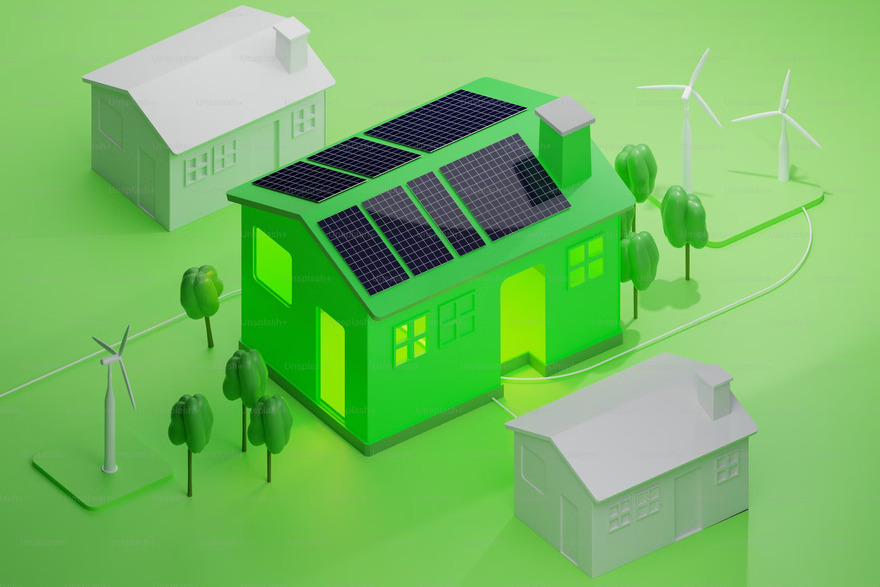
Decentralised Energy Solutions: Transforming Rural Communities in Africa
Decentralised energy solutions, such as solar home systems, mini-grids, and clean cooking appliances, can turn the lives of millions of people around for good in rural communities across Africa. By providing access to reliable, affordable, and clean energy, these solutions can enhance economic opportunities, improve health and education outcomes, and reduce greenhouse gas emissions. However, many barriers and challenges hinder the widespread adoption and scaling of decentralised energy solutions in Africa, such as lack of financing, policy uncertainty, technical skills gap, and low consumer awareness. To overcome these obstacles, there is a need for innovative approaches that involve stakeholders, such as the government, private sector, and development partners, in creating an enabling environment for decentralised energy solutions.
Decentralised Energy Solutions (DES) is revolutionising African rural communities by providing reliable and affordable access to energy. DES encompasses small-scale power generation systems that operate independently from centralised grids, relying instead on renewable energy sources like solar, wind, and hydro. These solutions are particularly well-suited for remote rural areas with limited access to electricity and away from the national grid.
DES encompasses small-scale power generation systems that operate independently from centralised grids, relying instead on renewable energy sources like solar, wind, and hydro.
The International Renewable Energy Agency (IRENA) stated in a report that extending affordable, secure, and environmentally sustainable energy to underserved rural areas can stimulate community development, enhance livelihoods, and improve quality of life. In cases where rural communities need more affordable or adequate power supplies, they often produce low-quality goods with limited diversity. DES can address these challenges by providing rural communities with reliable, affordable energy solutions.
Furthermore, the MIT Energy Initiative has discovered exciting possibilities for incorporating DES in rural areas and urban metropolises. For instance, Abuja Electricity Distribution Company in Nigeria also explores DES options to bring electricity to rural communities. Ije Ikoku Okeke, the company’s CFO, emphasises the potential of DES in electrifying both urban and rural areas.

Best practices and lessons learned from successful DES projects in African rural communities
- Community engagement: Involving the community in all stages of planning, implementation, and maintenance is crucial for the success of DES projects. This fosters trust, ensures alignment with community needs, and encourages project ownership.
- Partnerships: Collaborations between governments, non-governmental organisations (NGOs), and the private sector are vital for the success of the DES project. Governments can provide policy support, while NGOs and the private sector can contribute technical expertise and funding.
- Innovative financing: Deploying innovative financing mechanisms like microfinance, crowdfunding, and pay-as-you-go systems has expanded DES access in rural communities. These models overcome the high upfront costs associated with DES, making them more affordable.
- Capacity building: Providing training and education to local communities on the operation and maintenance of DES systems is essential for long-term sustainability and local entrepreneurship promotion.
- Technology selection: Carefully selecting appropriate technology tailored to the local context, considering resource availability, climate, and specific community needs, is critical for successful DES implementation.
- Monitoring and evaluation: Regularly monitoring DES system performance and evaluating their impact on the community is essential. This assists in identifying improvement areas and ensures the project’s long-term sustainability.
To accelerate the transition to a decentralised energy system in Africa, the following recommendations and suggestions are proposed
- Investment in renewable energy infrastructure: To enhance the capacity of decentralised energy systems, governments and private investors must invest in renewable energy infrastructure like solar panels and wind turbines.
- Incentivise adoption of decentralised energy systems: Governments can incentivise households and businesses to adopt decentralised energy systems by offering decentralised credits and other incentives for decentralised renewable energy solutions.
- Promote energy efficiency: promoting energy efficiency, such as using energy-efficient appliances and LED lighting, can reduce energy consumption significantly, leading to lower overall costs of decentralised energy systems.
- Support research and development: Governments and private investors should support research and development efforts to improve the efficiency and affordability of decentralised energy systems.
- Collaboration and partnerships: collaboration among governments, private investors, and local communities is crucial for expediting the transition to a decentralised energy system in Africa.

